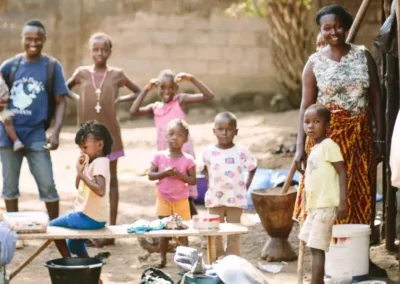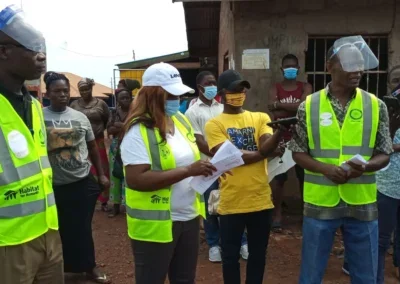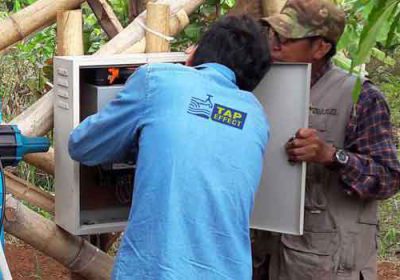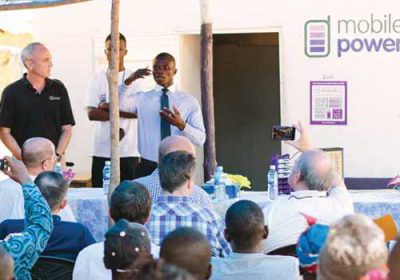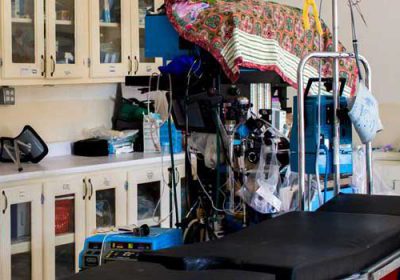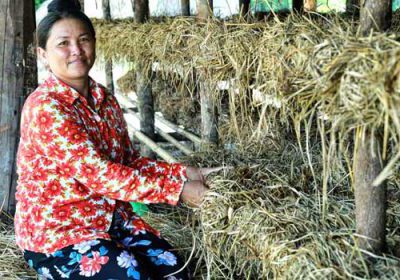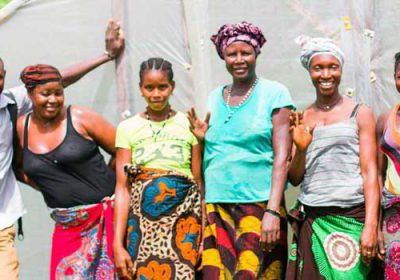Climate Resilience in Suburban Sierra Leone
Working towards more resilient communities through risk mitigation and climate adaptation from a community-based perspective.
Project Information
Project Status: Legacy
Start Date: December 2019
End Date: January 2021
Countries: Sierra Leone




Resources
Climate adaptation as community development
Poor communities often lack effective organization and structures, making them especially vulnerable to the effects of climate change. These communities have little or no experience in preparing for and responding to events such as irregular rainfall causing floods or droughts and intensified and uncontrolled urbanization. It is the combination of their exposure to the climate-related risks and their lack of organization, experience, and skills that makes them extremely vulnerable.
Two fragile communities near Freetown, Sierra Leone were severely affected by the disastrous August 2017 mudslides. Both were unable to implement comprehensive and timely precautionary actions to mitigate the impact. They were significantly influenced by three dynamic and challenging factors: 1) climate impacts, 2) urbanization and 3) the absence of government action. This climate resilience project focuses on these two suburban communities.
Project Goals
- To develop community strengths and build resilience through self-organization with attention to knowledge sharing and learning, collaboration, social networks, leadership, economic diversification, and simple technical adaptation solutions.
Expected Outcomes
1. Mobilize and raise community awareness of the local effects of climate change and enhance community capacity to plan and implement community-based climate change adaptation programs
2. Initiation and implementation of community-based mitigation and adaptation projects, and the establishment of a coordination space for knowledge and experience exchange between civil society, authorities and external partners in the private sector
Before this time we have been losing our properties, houses, outbreak of diseases and cholera and sometimes even our children cannot go to school due to the flooding caused by poor drainage canals.
Community Resilience Committees
Community Resilience Committees (CRC’s) will be formed within the communities and will receive comprehensive trainings. They will work to raise community awareness and organization in response to extreme climate impacts and related threats. Their knowledge of the biggest struggles in their communities during disasters will allow them to quickly find the most important factors that need to be addressed during the project and plan for the future. They will serve as trained advocates for hygiene and sanitation, as well.
Clean Water, Sanitation & Hygiene
The project includes a major component focused on improvement, maintenance, and evaluation of current water systems through monitoring systems, improving efficiency and accountability. In addition to educating community members and CRC’s on clean water, sanitation, and hygiene (WASH) and launching advocacy work around that area, the project will also include waste management training to mitigate contamination.
Youth Empowerment
In a region with high youth unemployment, youth engagement is vital. An emphasis on involving youth and women in the project includes training them in new ways to monitor, maintain, adapt the most vulnerable areas to the risks of flooding.
Food Security
Seeds for vegetable planting are being distributed directly in the community to combat hunger and promote community sustainability. Fruit trees will be planted and community planning implemented to find the most sustainable locations for these trees.
How It Works
Increased climate resiliency requires first a focus on our adaptive capacity and an ability to mitigate the risks. To secure sustainability, activities in this project are based on participatory approaches with an emphasis on community mobilization, awareness-raising, and increasing community and partner organizational capacity concerning climate risk assessment.
Teams from World Hope International, funding partner Engineers Without Borders – Denmark, and National Skill Pool will work with community members to form Community Resilience Committees. Together, they will create and implement a plan for restoration and disaster mitigation.
The Community Resilience Committees will complete trainings to address climate challenges and raise awareness in their communities on health and hygiene in emergencies and the risks of water contamination during flooding. The project will also feature waste management training, search and rescue trainings, and the planting of fruit trees and more varieties of vegetables to support the communities.

